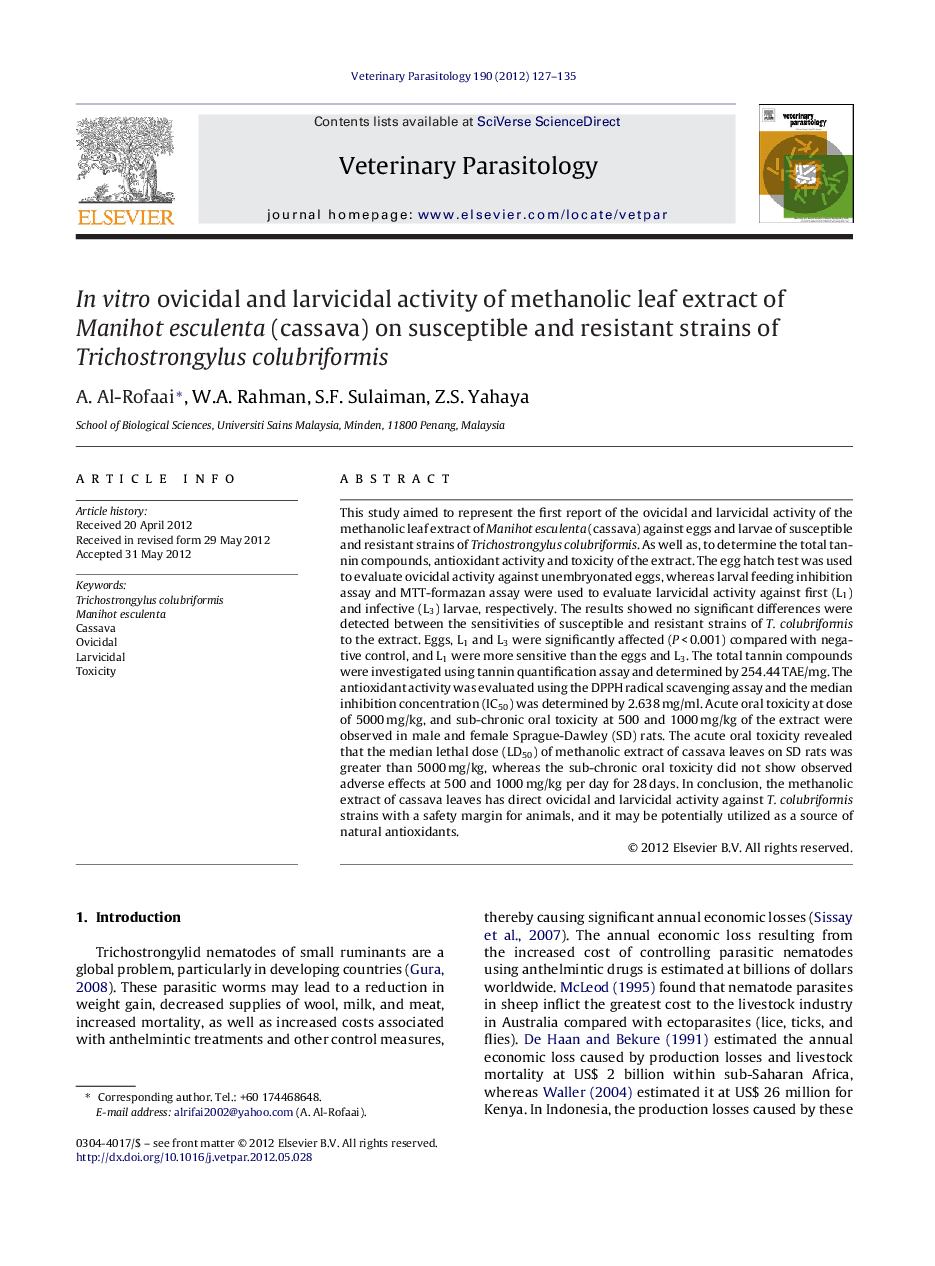| کد مقاله | کد نشریه | سال انتشار | مقاله انگلیسی | نسخه تمام متن |
|---|---|---|---|---|
| 5804672 | 1555708 | 2012 | 9 صفحه PDF | دانلود رایگان |

This study aimed to represent the first report of the ovicidal and larvicidal activity of the methanolic leaf extract of Manihot esculenta (cassava) against eggs and larvae of susceptible and resistant strains of Trichostrongylus colubriformis. As well as, to determine the total tannin compounds, antioxidant activity and toxicity of the extract. The egg hatch test was used to evaluate ovicidal activity against unembryonated eggs, whereas larval feeding inhibition assay and MTT-formazan assay were used to evaluate larvicidal activity against first (L1) and infective (L3) larvae, respectively. The results showed no significant differences were detected between the sensitivities of susceptible and resistant strains of T. colubriformis to the extract. Eggs, L1 and L3 were significantly affected (PÂ <Â 0.001) compared with negative control, and L1 were more sensitive than the eggs and L3. The total tannin compounds were investigated using tannin quantification assay and determined by 254.44Â TAE/mg. The antioxidant activity was evaluated using the DPPH radical scavenging assay and the median inhibition concentration (IC50) was determined by 2.638Â mg/ml. Acute oral toxicity at dose of 5000Â mg/kg, and sub-chronic oral toxicity at 500 and 1000Â mg/kg of the extract were observed in male and female Sprague-Dawley (SD) rats. The acute oral toxicity revealed that the median lethal dose (LD50) of methanolic extract of cassava leaves on SD rats was greater than 5000Â mg/kg, whereas the sub-chronic oral toxicity did not show observed adverse effects at 500 and 1000Â mg/kg per day for 28Â days. In conclusion, the methanolic extract of cassava leaves has direct ovicidal and larvicidal activity against T. colubriformis strains with a safety margin for animals, and it may be potentially utilized as a source of natural antioxidants.
Journal: Veterinary Parasitology - Volume 190, Issues 1â2, 23 November 2012, Pages 127-135